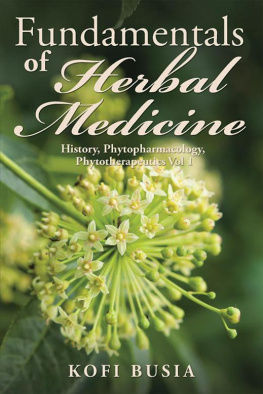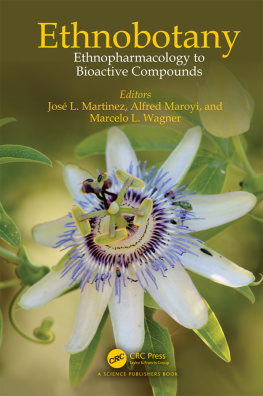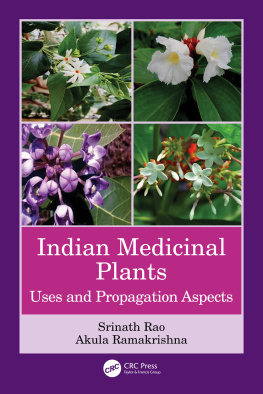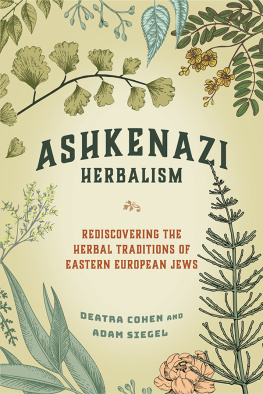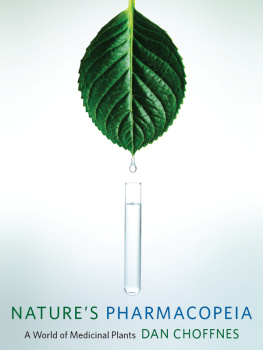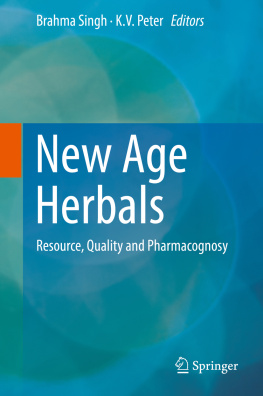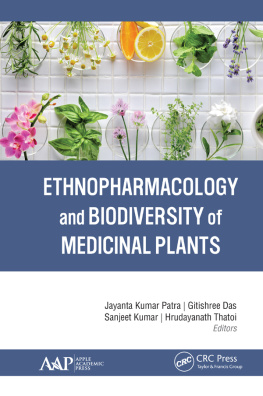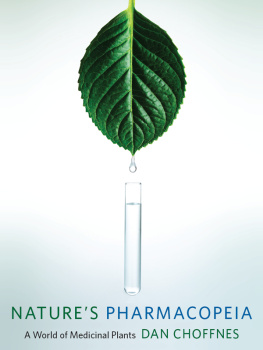Fundamentals
of
Herbal Medicine
History, Phytopharmacology
and Phytotherapeutics Vol 1.
Kofi Busia
Copyright 2016 by Kofi Busia.
Library of Congress Control Number: 2016906309
ISBN: Hardcover 978-1-5144-4737-6
Softcover 978-1-5144-4736-9
eBook 978-1-5144-4735-2
All rights reserved. No part of this book may be reproduced or transmitted in any form or by any means, electronic or mechanical, including photocopying, recording, or by any information storage and retrieval system, without permission in writing from the copyright owner.
Certain stock imagery Thinkstock
Rev. date: 08/26/2016
Xlibris
800-056-3182
www.Xlibrispublishing.co.uk
725756
Contents
Hippocratess comment on the struggles involved in acquiring competence and skill in medical practice The Life so short, the Art so long to learn applies also to the herbal practitioner. The ability to find sense within complexity is hard won, whatever the form of medicine.
The complexity of the patient, of the illness, of the therapeutic responsethis is what student practitioners, including student herbalists, have to wrestle with on a daily basis. And they are fortunate if they have reference books at hand as comprehensive as Fundamentals of Herbal Medicine that will aid them in unravelling and making sense of this complexity.
If I was starting out again as a student of herbal medicine, I would be delighted to have this book in my hands. I suspect it will prove to be a good friend to many student herbalists not just in Africa but far and wide. Scientifically accurate and up-to-date, this book covers an extraordinary range of subject areas directly relevant to the study of herbal medicine. Not all of it will be relevant to every reader, but every reader will find something of relevance to them.
Andrew Chevallier FNIMH MCPP
Herbal Practitioner
Past President, National Institute of Medical Herbalists (UK)
Former Senior Lecturer in Herbal Medicine, Middlesex University, London, UK
_____________________________________
Clinical practitioners of herbal medicine face a continuing struggle for recognition and training worldwide, despite the substantial role of herbal medicine in the service of the larger part of the world population. Thus, while plants are widely used without question and out of necessity for health purposes, they are readily denigrated, dismissed, and even excluded from modern medical practice. Yet there is undeniable evidence for the effects of many plant constituents, and much of this evidence help to explain the thousands of years of empirical administration of plants for health maintenance and treating illness. The roots of herbal medicine (forgive the pun) stretch back to antiquity and have considerable cultural weight, reflected in the major traditions and embodied in the texts and lifestyle practices of many peoples. More recently, claims of the benefits of herbal and traditional medicine have extended in the globalisation of herbal medicine markets, particularly as the traditions of Chinese and Ayurvedic medicine have been taken up in Western contexts. In the service of pharmaceutical discovery, there have been waves of ethnopharmacological studies based on historical archives and oral sources. Some single and combination plant extracts have reached clinical trials aimed at commercial exploitation as drugs, but systematic research in herbal medicine is poorly resourced. We lack reliable texts that draw together knowledge of modern medicine with pharmacological understanding of plants to provide a sound clinical basis for the use of herbal medicines. This book is of key importance in clearly establishing such a basis, and providing links between theory and practice.
This book will have widespread application on every continent for those interested in the practice of herbal medicine. A comprehensive overview of herbal history is provided and, alongside the more familiar European background and plants, there is an introduction to African herbal medicine with detailed monographs for key plants from Aloe to Yohimbe. The book fully addresses the chemistry of plants, identifying constituents with physiological actions. Drawing on the most up-to-date research evidence available, all of the plant monographs include safety and dosage advice. However, this book provides much more than an extensive overview of plants as drugs. This is only one aspect of herbal medicine since, as readers will discover, there is an underlying integrated approach which seeks to establish a therapeutic programme to promote and sustain health. This approach is addressed by bringing together a clear exposition of principles underpinning a clinical practice framework; from the medical consultation and diagnosis to preparations in the pharmacy. The detail is extensive, and even the sustainability of plant supplies is considered with the inclusion of details of wild harvesting standards. This book will support the development of training to a professional standard in the use of herbal medicines, enabling safe and effective clinical practice. It is a reference work setting a high standard, providing a bedrock text that will give guidance to all manner of clinical herbal practitioners for many years to come.
Anne Stobart, PhD
Previously Divisional Manager for Complementary Health Sciences at Middlesex University, London
Honorary Research Fellow, University of Exeter, UK
First and foremost, I would like to express my heartfelt gratitude to two former tutors of Birkbeck, University of London, Dr Howard Carless (my PhD supervisor) and Dr Barry Smith (mentor), for nurturing me with their patience, knowledge, and excellent teaching skills. It was Einstein who said, I never teach my pupils; I only attempt to provide the conditions in which they can learn. In Howard and Barry, I found beauty in the pursuit and propagation of knowledge, humility, kindness, tolerance, friendship, guidance, discipline, and love!
In writing this book, I have been most greatly inspired by the friendship and mentorship of some amazing colleagues I was fortunate enough to meet at Middlesex University, UK: Andrew Chevallier, without doubt one of the finest medical herbalists and writers of our time; Dr Anne Stobbart; Peter Jarrett; and Dr Barbara Pendry. A prolific writer of international repute, Andrew granted me permission to use his precious lecture notes on herbal therapeutics and gave me the courage to make major changes to the content, organisation, and tone of the book. Quite remarkably, Peter, an expert gardener, generously and willingly offered me many of the plant photos in his library while Anne, leveraging on her rich teaching experience, provided valuable insights that ultimately shaped the structure of this book. Barbaras constant encouragement kept me going whenever there was stagnation. I am indeed honoured and grateful to consider Andrew, Peter, Anne and Barbara not only as colleagues but more importantly as friends.
This book did not only benefit from the support of colleagues, but it was also directly inspired by the writings, teachings, and research of some unsung heroes and heroines: Simon Mills, Kerry Bone, David Hoffmann, Richard Adams, Adrian McDermott, Hananja Brice-Ystma, Michael McIntyre, Peter Conway-Grim, Dr Lily Holman, late Dr Ellis Snitcher, Dr Celia Bell, Colin Nichols, Emeritus Prof Peter Houghton, Prof Joanne Barnes, Prof Michael Heinrich, Prof Elizabeth Williamson, Jim Clark, Dr Merlin Willcox, Dr Gerard Bodeker, and Prof Ameenah Gurib-Fakim, the current president of Mauritius. To these distinguished practitioners, teachers, and plant medicine research scientists, I owe a debt of gratitude, which neither words nor material rewards can adequately pay. If you find this book interesting, informative, or educative, you would be advised to go to the source and read their books and publications or experience their teaching as well.
Next page
